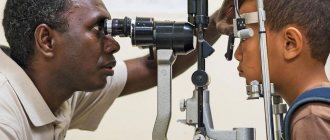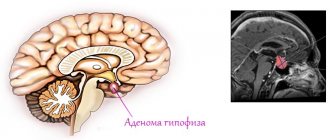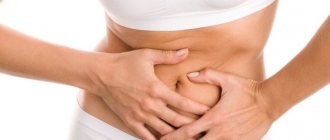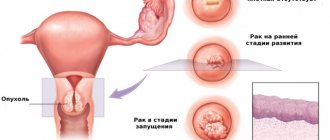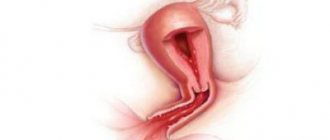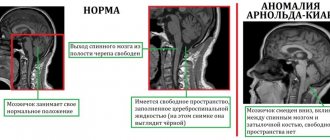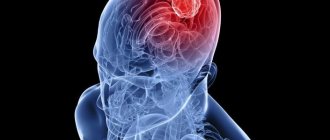Premenstrual syndrome (PMS) is a real condition that millions of women struggle with every month. 85 percent of women experience at least one PMS symptom during their monthly cycle, but most of these symptoms are mild and do not reflect a diagnosis of true PMS. And on the opposite end of the spectrum, women who experience severe emotional distress before their periods do not have PMS, but do have a more serious condition known as premenstrual dysphoric disorder (PMDD).
PMS, what is it really?
Perhaps the word “warns” is too harsh in this situation. And it would be more correct to say - medical https://smg.if.ua recommends or advises. But the only thing is that the average person, otherwise, can simply brush aside such instructions or not give them due importance.
It's easy to assume that any bad mood that occurs right before your period is PMS.
There are rules for defining PMS, which consists of recurring, both physical and behavioral symptoms that affect some elements of functioning in the second half of the menstrual cycle. If strict clinical criteria are applied, only 30 percent of women may experience actual PMS.
There are some groups of women who experience PMS more often than others, including women:
- Between the ages of 30 and 40
- Having children
- With a family history of mood disorders, such as depression
- Personal history of postpartum depression or other mental disorder
Hormone therapy
Hormonal treatment of PM syndrome can be carried out only according to indications, and exclusively as prescribed by a doctor. The main prerequisite for the prescription of such drugs is the insufficiency of the second phase of the menstrual cycle. In this case, drugs containing progesterone, estrogen-gestagens, as well as drugs like Bromocriptine may be prescribed. But it should be borne in mind that not all gynecologists are fans of this treatment.
Hormonal drugs have a powerful effect on the entire body, so self-medication in this case is unacceptable.
PMS symptoms?
Although PMS symptoms vary from one woman to another, here are some of the most common manifestations:
- Fatigue
- Difficulty sleeping
- Stomach upset, flatulence, diarrhea , or constipation
- Headache
- Lower back pain
- Painful sensations in the chest
- Changes in appetite or food cravings
- Muscle pain
- Inability to concentrate
- Mood swings
- Irritability or depressed mood
Login to the site
There is probably not a single woman, and even men, who do not know what the abbreviation for the specific female condition PMS stands for - premenstrual syndrome. We often use these biting three letters when we want to tease someone aggressive or irritated, who is not in control of their emotions: “You probably have PMS?” But you shouldn’t use this trick, because PMS is a really unpleasant condition. There is also a male version of deciphering these letters - the Period of Male Suffering. Today we’ll talk about how to experience PMS painlessly for both women and the men around them.
What is PMS in girls and women?
So, PMS is a specific condition of a woman, which begins a few days before menstruation and ends with its onset, characterized by a number of characteristic symptoms. It is thanks to excessive capriciousness, tearfulness and nervousness, which often become companions of the fair sex these days, that we ourselves and the people around us are accustomed to “calculating” this syndrome, and the very combination of letters PMS has already become a household word.
Causes of PMS in women
The theory of the causes of PMS, based on changes in a woman’s hormonal levels, is still considered the most substantiated from a medical point of view. According to her, a premenstrual symptom occurs due to an imbalance of estrogen and progesterone in a woman’s body. In large quantities, these hormones retain fluid in the body, which causes the appearance of edema, exacerbation of problems with the heart and blood vessels, swelling of the mammary glands, and bloating. And estrogen “acts out” on a woman’s psycho-emotional state, making her irritable and aggressive.
The impetus for the development of prolonged and intense PMS can be the following phenomena in a woman’s life:
- abortion;
- incorrectly selected hormonal contraception;
- infectious diseases;
- pathologies were detected during pregnancy or childbirth.
All this leads to the fact that in the second half of the cycle the level of natural progesterone produced by the ovaries decreases.
When does PMS start in women?
Typically, premenstrual syndrome overtakes the female body approximately 3-10 days before the start of menstruation. But due to different physiological characteristics - the duration of the cycle, hormonal levels, general emotional and physical state, one woman can feel the approach of her critical days almost immediately after ovulation, while another recognizes PMS only 1-2 days before menstruation.
Symptoms of PMS in women: list
So, we all know that PMS is an extremely unpleasant condition; many women have a hard time with it, both physically and psychologically. Let's look at the symptoms of PMS in different aspects:
Physical signs:
- General deterioration in health - dizziness, heaviness or aches throughout the body, difficulty breathing, which may periodically become confused, rapid heartbeat, periodic increase or decrease in blood pressure.
- Pain in the lower abdomen is nagging, aching, which either subside or reappears. The abdomen swells, constipation may appear, and the frequency of urination, on the contrary, may increase.
- Pain in the mammary glands, their fullness, excessive sensitivity of the nipples.
- Possible headaches, nausea, chills or increased body temperature, discomfort in the joints and lower back.
Psychological (emotional) signs:
- Mood changes - irritability, apathy, tearfulness, memory loss, indifference to everything, a state bordering on depression may be present. A woman in this state can easily be enraged and made nervous.
- Sleep disorder – a woman may feel drowsy more often than usual, or, conversely, suffer from insomnia at night.
- There is an exacerbation of anxiety attacks, panic attacks or causeless panic may occur.
Individual (subjective) signs. Many representatives of the fairer sex during PMS complain of:
- weight gain,
- swelling,
- increase in body volume,
- exacerbation of psychosomatic reactions (annoyed by excessively loud sound, too bright light, etc.);
- increased appetite, change or exacerbation of taste preferences;
- a decrease or vice versa – an increase in libido, unexplained surges in sexual activity.
Indeed, it is difficult to call a girl with such a “set” of symptoms a happy person.
Fortunately, not all women experience the entire list of PMS symptoms and, of course, the named symptoms do not make themselves felt immediately and simultaneously. Let us highlight the forms of PMS severity, based on which we will further look for ways to combat premenstrual syndrome. Forms of PMS in women Mild form - when a woman feels 3-4 of the above symptoms of PMS and they do not have a serious impact on her well-being and lifestyle. This stage does not require treatment; it is enough to simply treat the girl with care and understanding during this period.
Medium form – there are more signs of PMS, they are more pronounced and more noticeable, but this does not affect the woman’s ability to work, and by adding some medications or home remedies, she can lead her usual lifestyle. The average form of PMS affects 10-15% of women.
Severe form - the list of symptoms is quite wide, the woman cannot work and live her usual life, she needs treatment, and sometimes even hospitalization. Only 3-5% of women suffer from this form.
How many days does PMS last in women?
The duration of PMS in women varies: for some lucky women, the syndrome lasts only a couple of days, reminding itself 2-3 days before the start of menstruation, and ending immediately with the onset of the critical days. Other representatives of the fair sex are less fortunate: their PMS can begin a week or a week and a half before the first day of the cycle and end only after the end of the critical days.
On average, the duration of PMS in physically healthy women is about a week. Some women do not even know how many days their PMS lasts, since they do not feel any discomfort before menstruation and are not familiar with the signs of premenstrual syndrome.
Woman during PMS: signs and well-being
- The craving for junk food, fast food, salty and fatty foods increases. You uncontrollably want something sweet, now salty, now spicy, now sour. And during this difficult period, it is most difficult for a woman to deny herself, because her emotional state leaves much to be desired.
- A woman may have a harder time withstanding alcohol intoxication, and may suffer from a hangover more severely and longer than usual.
- Swelling is more pronounced, especially in women who, due to their unstable emotional state before menstruation, indulge in junk food.
- Most women with PMS experience increased fatigue, want to sleep more often and more strongly than usual, and no matter how much sleep she still feels exhausted and unrested.
- If a woman experiences any allergic reactions, they may worsen during PMS.
Treatment of PMS in women
PMS is not exactly a disease, but its moderate and severe stages, which we discussed above, require treatment and medications agreed upon with a specialist. Often its symptoms and manifestations are so strong and literally torture the female body that it is impossible not to react to them. Some use traditional medicine, for others light sedatives or antispasmodics are enough, and those who are especially unlucky to experience all the “delights” of PMS turn to heavy artillery in the form of antidepressants and serious hormonal drugs.
We will look at all the ways to get rid of PMS and be sure to name the best methods and medications based on reviews from real women.
Pills for PMS in women
Treatment during PMS should be carried out depending on the symptoms in which this syndrome manifests itself. Below is a list of the best medications to relieve the symptoms of PMS in all its forms.
Medicines for common symptoms of PMS
Magne B6 - the drug replenishes the lack of magnesium in the body, which directly affects the improvement of sleep quality, nourishing the nervous system, reducing irritability and nervousness. The cramps and pain associated with PMS also subside.
Mastodion - similar to Magne B6 in its effect on the nervous system, has also proven itself in the fight against headaches, migraines, pain in the abdomen, back, mammary glands, improves intestinal function and prevents constipation.
Cyclodinone is an absolutely natural drug (the active component is common twig extract), normalizes the production of the hormones estrogen and progesterone. It is recommended to take it not only for discomfort during PMS, but also for identified hormonal imbalances.
Remens is a broad-spectrum drug: relieves swelling and pain; normalizes the functioning of hormones and ovaries; reduces nervous tension, irritability, and depression.
Sedatives for PMS
Painkillers for PMS
Folk remedies for PMS
Those who practice traditional medicine claim that the following drug can significantly alleviate the symptoms of PMS (associated with excessive irritability and fatigue):
- Mix 3 parts of peppermint leaves and rhizomes with valerian roots, 4 parts of chamomile flowers.
- Pour 1 tablespoon of the mixture with a glass of boiling water, let it brew for 20 minutes.
- We take it in two doses.
If during PMS you are tormented by problems of a vegetative nature - nausea, constipation or upset bowel movements, use this recipe:
- Prepare an infusion of herbs. Take 1 teaspoon each of sophora fruits, alder cones, yarrow herb, agrimony herb, gravilat root, bird cherry fruits or flowers.
- In the evening, fill the thermos with boiling water at the rate of 2 tablespoons per 1 liter of water.
- We take half a glass half a glass half an hour before meals the whole next day.
- Honey will help improve the taste of the composition.
Interesting facts about PMS
- From 30 to 55% of women aged 18-55 years complain of PMS.
- Many young ladies do not complain about a decrease in libido during PMS, but, on the contrary, notice its surges, which, associated with irritability and emotional uncontrollability, give their partners a chance for excellent, passionate sex.
- Women who work mentally are most susceptible to symptoms of PMS.
- If you indulge in sweets, smoked foods and alcohol during PMS, you will aggravate its symptoms, but if you indulge in milk and seafood, you will feel much better.
- During PMS, girls most often make impulsive actions and thoughtless purchases, but shopping is an excellent cure for this unpleasant syndrome.
- Of all the women convicted of various types of crimes, 20% admit that they committed them during the period when they felt PMS.
- Often, in the second half of the cycle, female students’ performance begins to falter.
How to distinguish PMS from pregnancy?
If there is a possibility of conceiving a child in this cycle, you should not rely only on your instincts and try to distinguish PMS from pregnancy symptoms. After all, for most women, the signs of menstruation or pregnancy may not differ at all. If you want to find out if you are pregnant, or if your PMS is just too intense and does not allow you to wait until the first day of your delay and take a pregnancy test, donate blood for hCG at the antenatal clinic and be sure of the result.
How to deal with PMS: reviews and secrets of women
The best way to combat PMS will be a comprehensive fight against the syndrome, namely:
- maintaining a proper diet before the onset of menstruation;
- if you can’t comply with step 1, at least don’t indulge in smoked, salty, fatty, sweet and alcohol;
- correct drinking regime (at least 1.5-2 liters of clean water per day);
- rational physical activity;
- sufficient time for sleep and rest;
- taking vitamins;
- taking a natural remedy to maintain hormonal balance, such as Remens.
Love yourself, your body and be healthy!
Source
Medicines and treatment of PMS
One of the first medications that gynecologists considered for the treatment of PMS was birth control pills. Birth control pills can help regulate female hormones and can help offset the intensity of physical symptoms and mood swings. If birth control pills do not resolve mood-related symptoms, gynecologists usually recommend antidepressants.
Doctors also recommend limiting caffeine intake to minimize PMS symptoms associated with breast tenderness, and taking nonsteroidal anti-inflammatory drugs (NSAIDs, such as ibuprofen and naproxen) to reduce menstrual pain and heavy bleeding.
One of the widely touted medications is Vitamin B supplements. But, research results are conflicting, and women should avoid supplements and instead focus on a well-balanced diet with plenty of foods high in B vitamins (green leafy vegetables, legumes, seafood).
If you are experiencing any PMS symptoms that are interfering with your daily life, it is time to seek medical help. Always consult your doctor about any symptoms that seem unusual or are disruptive to you. There are treatments available that can help you cope.
A woman's nervous state before menstruation has become an object of ridicule from men. Premenstrual syndrome (PMS) “spoils” the lives of both, often causing quarrels in couples and quarrels in the family. Therefore, men should also know what PMS is in girls.
Women who have experienced all the “delights” of PMS know for sure that this is not a series of whims, but a truly complex condition. However, only a few of them know how to cope with the manifestations of hormonal changes in the body. Modern medicine provides such an opportunity: following certain rules and using safe medications will help you survive the premenstrual period without shock and depression.
Read also How to test for cytomegalovirus
Non-drug therapy
Non-drug treatment of premenstrual condition consists of several approaches. To achieve maximum results, it is recommended to combine all of the methods below.
- Psychotherapy sessions. To do this, a woman needs to find a competent psychologist who will help her cope with the storm of emotions that “roll up” during a difficult period for her. The main thing is not to hide anything from the doctor, to perceive him as a friend, and not as a doctor.
- Physiotherapeutic treatment. Involves a visit to the physical therapy room or the office of a massage therapist or chiropractor. In this case, hydromassage, acupuncture, hydrotherapy, etc. help well.
- Correction of diet and lifestyle. This is a treatment measure for PM syndrome, which can be either auxiliary or additional. Playing sports or fitness helps you lose excess weight, changing your menu improves metabolic processes and has a beneficial effect on hormonal levels, and thanks to good, healthy sleep, you can prevent the occurrence of migraines.
It is scientifically proven that in women who avoid lack of sleep, physical and psychological overload, PMS is much less common.
PMS in women - transcript
What it is? PMS is a special condition of a woman several days before menstrual bleeding, characterized by emotional instability, vegetative-vascular and metabolic abnormalities. The abbreviation “PMS” stands for premenstrual syndrome. To make it clear what premenstrual syndrome is, we will answer frequently asked questions:
- Premenstrual syndrome: are men right when they mock a woman’s condition?
This time the men are clearly wrong. Premenstrual syndrome is included in the WHO classification. This means that the global medical community recognizes this deviation.
- Do all women experience PMS?
Every second woman experiences premenstrual syndrome. Moreover, the incidence of PMS and the severity of its symptoms increases with age. So, before the age of 30, only 20% of women suffer from it, after 30 - every third, and after 40 years, PMS occurs in 55-75% of women.
- Why does premenstrual syndrome occur?
Doctors do not give a definite answer. Hormonal fluctuations before menstruation, as a cause of PMS, are not always justified. For some women, changes in the levels of the hormones progesterone and estrogen are not as significant. The theory about a temporary change in neuroregulation is closest to the truth.
- How many days before your period do PMS symptoms appear?
A woman's condition changes 2-10 days before the onset of menstrual bleeding. The duration of this period and the severity of its manifestations vary from person to person. However, all painful sensations necessarily stop in the first days of menstruation.
- Do you just have to endure premenstrual syndrome?
Not at all necessary. To alleviate menstrual syndrome, several rules have been developed for daily routine and nutrition. Also, in case of severe manifestations, the gynecologist may prescribe certain medications (they will be discussed below).
- Does PMS go away after childbirth?
In some women, premenstrual syndrome is initially absent and may appear after childbirth. For others, on the contrary, unpleasant symptoms disappear or weaken (especially breast swelling and tenderness) after the birth of the child.
Important! PMS and menstruation are always connected: painful symptoms disappear after bleeding occurs.
Most often, premenstrual syndrome occurs in smokers (the likelihood of PMS doubles!), and women with a weight index over 30 (divide your kg by your height squared in meters). The risk also increases after abortion and complicated childbirth, after gynecological operations. A genetically determined reaction of the body to physiological changes before menstruation is also possible. However, PMS is most often recorded in depressed (phlegmatic) and emotionally labile (choleric) women.
Additional medications and products
In the treatment of this syndrome, gynecologists often resort to the use of plant-based drugs. The most effective and best of them, according to Dr. V.V. Shatalova, are the drugs Mastodion and Cyclodinone. These are pharmaceutical products manufactured by pharmaceutical companies. The active components of the products are extracts of common twig, Abraham's tree, monk's pepper (sacred vitex).
Each of the components of these drugs, similar to each other, has its own special effect on the body. In particular, common twig affects the activity of the hypothalamus, regulating the production of the stress hormone prolactin. Due to the inhibition of its production, pain and swelling of the mammary glands is reduced.
Only the attending physician can choose the right drug and determine its dosage. If you resort to self-medication, you may not only fail to achieve the expected therapeutic effect, but even worsen the symptoms of an unpleasant premenstrual condition.
Characteristic symptoms of PMS
It is unlikely that there will be women with the same picture of PMS: there are about 150 signs of premenstrual syndrome. However, in such a variety of characteristics, main groups can be distinguished. Symptoms of PMS in women:
- Deviations from the nervous system and psyche
A woman’s mood can be described in one word: negative. She may cry over a trifle or for no reason at all. Ready to “tear to shreds”, the degree of aggression also little coincides with the offense inflicted. At best, a woman is depressed and experiences irritability, which she cannot always cope with.
- Hormonal changes
Due to increased progesterone levels for 1-2 weeks. Before menstruation, a woman’s mammary glands become noticeably enlarged and engorged. Many women at this time need a bra one size larger than usual. The bursting pain in the chest can be so intense that normal walking causes discomfort.
Some women have veins protruding from the skin of their mammary glands. At the same time, swelling of the hands and face may occur, and swelling in the legs becomes more noticeable at the end of the day. An increase in temperature to 37.0-37.2ºС is often recorded. Often the stomach increases in size due to the accumulation of gases and constipation.
- Autonomic disorders
Read also Drug addiction: criteria, diagnosis and clinical features of various forms.
During PMS, a throbbing headache often occurs, radiating to the eye area. The attacks are similar to migraines, sometimes accompanied by nausea and vomiting, but the pressure remains normal.
PMS after 40 years, when hormonal changes are aggravated by concomitant diseases, often provokes increases in blood pressure in the evenings (hypertensive crisis), tachycardia (rapid heartbeat), shortness of breath and heart pain.
Premenstrual syndrome can occur with a predominance of certain symptoms (edematous, cephalgic, crisis), but most often a mixed form is diagnosed. Almost every woman suffering from PMS experiences:
- constant thirst and increased sweating, acne;
- dizziness and staggering, especially in the morning, and fatigue;
- desire to eat salty or sweet, increased appetite;
- heaviness in the lower abdomen and spastic pain, irradiation to the lower back is most often caused by a long-term inflammatory process in the genitals (thrush, chronic adnexitis, etc.);
- goosebumps and, less commonly, numbness of the fingers and toes associated with vitamin deficiencies. B6 and magnesium;
- aversion to strong odors, even your own perfume.
A severe form of PMS is diagnosed when there are 5-12 severe symptoms.
Premenstrual syndrome can occur in the following scenarios:
- Compensation stage - signs of PMS are mild and disappear immediately upon the onset of menstruation. The course is stable, progression of symptoms over the years is not observed.
- Subcompensation stage - the severity of symptoms increases over the years, as a result, the woman’s ability to work is impaired for some time.
- Stage of decompensation - severe symptoms (hypertensive crises, fainting, etc.) disappear only after several days after the end of menstrual bleeding. Women experience panic attacks and suicidal thoughts are common. During the period of PMS, women often show violence, especially towards their children (they beat them severely).
In case of severe symptoms of PMS, it is permissible to issue a sick leave certificate. However, severe premenstrual syndrome can be a reason for refusal when applying for a job. In European countries, during a divorce, if the ex-wife experiences severe PMS, the children can be left with the father.
What are the risk factors for PMS?
Scientists cannot explain for certain why women develop PMS syndrome.
According to theory, the factor could be human psychosomatics or hormonal imbalance. In the second phase of the menstrual cycle, the ratio of sex hormones becomes extremely unstable.
Estrogens, designed to improve creative intelligence and mental state, begin to experience a severe imbalance.
Progesterone accumulates in excess, causing genuine despair and even indignation in many women.
The level of androgens, responsible for energy and performance, increases sharply. Many functions fail and the body begins to behave inappropriately. Hormones responsible for emotions and behavior negatively affect parts of the brain.
The syndrome can be provoked by:
- hereditary factor;
- endocrine system failure;
- psychovegetative deviation.
Such fluctuations in sex hormones are reflected in the limbic parts of the brain. Endorphins and estrogens negatively affect cyclical changes in mood.
If the level of endorphins increases and progesterone decreases, then the female sex experiences:
- swelling;
- unexplained aggression;
- stomach disorders, cardiovascular system;
- mental disorders before PMS with a lack of serotonin, as the hormone of joy, which leads to mental disorders, depression, sadness, tearfulness;
- lack of vitamin B6 in the body, and this means mood swings, hypersensitivity, increased fatigue. If there is not enough magnesium, then women experience dizziness, headache, and signs of tachycardia.
The menstrual cycle has a 2-phase course.
First, the follicle is formed, then:
- the egg develops and grows;
- matures under the influence of estrogen, as the main female hormone;
- the egg leaves the follicle to form the corpus luteum;
- Progesterone is produced, which promotes pregnancy, abdominal enlargement, and swelling of the mammary glands.
If fertilization does not occur, the egg begins to die and disintegrate. At this time, a decrease in progesterone levels, hormonal surges, and an increase in estrogen are observed.
The jumps will be more noticeable with internal chronic diseases in the female body.
Signs of PMS may be influenced by provoking factors:
- abortion;
- traumatic brain injury;
- malnutrition;
- fatigue;
- overvoltage.
The following can play a cruel joke and provoke the syndrome:
- complicated childbirth,
- surgery,
- gynecological diseases,
- unplanned abortion.
- Harmful professional activity, uncomfortable working conditions.
- Strong mental stress, constant logical thinking, work in serious organizations, increased responsibility.
- Subverted hormonal levels due to an unsuccessful abortion or miscarriage, as well as due to improper use of various hormonal contraceptives. Using IUDs as a method of preventing unwanted pregnancy.
- Family problems and troubles with relatives. Worries about children and relatives, a turbulent situation at home.
Premenstrual syndrome or pregnancy
The symptoms of premenstrual syndrome are very similar to those of pregnancy. The main question for women is how to distinguish: PMS or pregnancy? It is almost impossible if you do not take a pregnancy test or wait a while for your period. However, some signs suggest pregnancy:
- Only during pregnancy is there a perversion of taste. In addition to cravings for salty or sweet foods, as with PMS, a pregnant woman refuses her previously favorite food and expresses a strong desire to eat chalk and earth. An addiction may arise, for example, to lard, which the woman previously could not tolerate.
- Strong odors also cause a negative reaction in a pregnant woman. In addition, a pregnant woman may experience olfactory “hallucinations”: a specific smell appears in an inappropriate place.
- Pain in the lower abdomen during pregnancy is less annoying, occurs periodically and is of a milder, nagging nature. Lower back pain appears only when there is a threat of miscarriage or in later stages of pregnancy.
- Mood swings can occur already in the first weeks of pregnancy, which coincides with the period of PMS. However, a pregnant woman expresses positive emotions as violently as anger. The premenstrual period is characterized by a negative emotional reaction.
- Fatigue occurs closer to 1 month. pregnancy (about 2 weeks missed period).
- PMS ends with the onset of menstruation. In this case, full uterine bleeding occurs. Sometimes during pregnancy you also experience spotting on the days when your period is due. The difference between bleeding during pregnancy and menstruation is its spotting nature: only a few drops of blood are released, and the discharge is pink or brownish.
- Only during pregnancy, from the first weeks, frequent urination is often observed. This symptom is not typical for PMS.
- Nausea can be triggered by premenstrual syndrome and occurs throughout the day. During pregnancy, nausea and vomiting occur a little later, at 4-5 weeks. and indicate early toxicosis.
Read also: How to remove hair effectively? 6 best ways to depilate at home
Important! An hCG test will help diagnose pregnancy. Some tests are highly sensitive and can detect pregnancy within 4 days. before the expected menstruation begins. However, the optimal time for the test is considered to be the 2nd day of a missed period and the next week.
Determining the start date of menstruation
The reproductive cycle lasts 28 days. Exactly how many days are allotted for the duration of the entire period depends on the individual characteristics of the body.
How to understand that your period will start soon? Critical days involve a special cyclicity, which is divided into phases. There are 4 of them in total:
- From the first to the fifth day. When the level of progesterone in the blood decreases, the epithelium inside the uterus exfoliates. Thanks to him, separation occurs. In this case, a follicle appears, forming an egg.
- From the fifth to the fourteenth day. During this period, the menstrual cycle is not observed. Blood clots come out of the cervical canal. The estrogen content exceeds the norm, due to which the follicle opens. At this moment, the egg is in the fallopian tube, where it can be fertilized.
- From 15 to 23 days. If conception does not occur, then the estrogen level decreases. The devastated follicle becomes similar to the corpus luteum, which is responsible for the appearance of progesterone.
- From 23 to 28 days. Progesterone is required by women for healthy pregnancy and subsequent childbirth.
If conception does not occur, women will soon find out when their periods will begin. A harbinger of this is the removal of dead cells from the uterine mucosa. At this moment, female representatives feel slight discomfort, which is expressed in certain symptoms. It is this phenomenon that warns of the onset of menstruation.
Treatment of PMS - drugs and advice
It is quite possible to reduce and, at best, completely get rid of premenstrual syndrome. If the symptoms are not too severe, the following recommendations will help cope with PMS without drug therapy:
- Adequate sleep of at least 8 hours. Walking and breathing exercises will help improve your sleep.
- Physical activity stimulates the synthesis of endorphins, which improve mood and calm the nervous system. During the premenstrual period, dancing, yoga and other relaxing practices (massage, bathing) are especially useful.
- Correction of nutrition - giving up sweets and fatty foods, saturating the diet with fruits and vegetables. Coffee, alcohol, energy drinks and chocolate have an irritating effect on the nervous system. These foods should be excluded during the PMS period.
- Regular sex is a source of oxytocin (the hormone of happiness). In addition, the uterus relaxes and spastic pain disappears. You should not drown out increased sexual desire: nature itself tells you what the body needs.
- Hold your emotions. The best tactics for the premenstrual period - I'll think about that later. Of course, you shouldn’t ignore the serious negativity that coincides with PMS. But knowing that it is easy to “go too far” and say too much, it is better to postpone a serious conversation until later.
- You should not go shopping during the premenstrual period. There is a high probability of wasting money, which can subsequently develop into a family conflict.
In severe cases, a woman is prescribed drug therapy:
- PMS pain, what to do? - Let's say taking No-shpa. However, you should not get carried away with this drug. Having an antispasmodic effect, No-spa in large doses can increase menstrual bleeding. NSAIDs (Ibuprofen, Naproxen) provide a good pain-relieving effect. It is worth remembering: Ibuprofen (Nurofen, Mig-400) is not recommended for women over 40 years old due to its negative effect on the heart.
- Pain in the chest and swelling are easily eliminated by taking diuretics (Veroshpiron 25 mg, Furosemide 40 mg).
- Multivitamins - will compensate for the lack of magnesium, calcium and vit. AT 6. An excellent remedy for PMS is the drug Magne-B6, treatment lasts 1 month. followed by a repeat course. The homeopathic remedy Mastodinon and saffron decoction have a good effect.
- Relieving nervous system excitation - herbal preparations (Novo-Passit, Persen) are most often used. Mixed tinctures of valerian and motherwort will help reduce stress and improve sleep, take 15-25 drops. 2-3 times a day or only an hour before bedtime. In severe cases, the tranquilizer Afobazole is prescribed, which effectively eliminates anxiety. At the same time, the drug does not have a negative effect on the psyche; women can drive a car while taking it. It is advisable to take antidepressants (Fluoxetine, Zoloft, Paxil) and antipsychotics (Nootropil, Sonapax, Aminalon). Tranquilizers, antidepressants and antipsychotics are used only as prescribed by a doctor!
- Hormonal drugs - to stabilize hormonal levels and level out PMS symptoms, oral contraceptives (Midiana, Yarina) are used, course - 3 months, followed by repetition. The progestational drug Drospirenone (Anabella, Angelique, Vidora) prevents engorgement of the glands and swelling.
Premenstrual syndrome cannot be tolerated. The condition of PMS, especially in women with an unstable psyche and neurosis, can worsen over time, which ultimately will negatively affect the quality of life and ability to work.
It is also worth remembering that diseases of the genital area, endocrine disorders (including hypo- and hyperthyroidism) only aggravate the course of premenstrual syndrome. Their treatment, following recommendations for lifestyle changes and, if necessary, medications will help cope with even severe PMS.
Pharmacotherapy
Treatment with medications in this situation is aimed at eliminating nervous and endocrine disorders. For this purpose use:
- Neuroleptics. This group of drugs has a strong effect on the central nervous system. Such medications are available with a doctor's prescription and can only be taken if strictly indicated. Under their influence, psycho-emotional disorders are eliminated. To treat such disorders in PMS, the drugs Saphris, Limipranil, Ariprizole, Haloperidol, etc. can be prescribed.
- Sedatives. It is better to choose sedatives based on plants. These are: Novo-Passit, Motherwort Forte, valerian tincture, Sedavit, etc. Teas based on chamomile, lemon balm, and mint are good at normalizing the psycho-emotional state and improving sleep. If tachycardia occurs, then Tricardin and Barboval drops will come in handy. They have a sedative effect, while simultaneously reducing the pulse.
- Vitamin therapy. It is useful for women who suffer from PMS to take the following vitamins: tocopherol, folic and ascorbic acid. You also need to drink complexes containing vitamin B6 and calcium. These elements reduce irritability and aggressiveness.
In parallel with drug treatment, doctors recommend adjusting the diet and general lifestyle. But more on this later.
